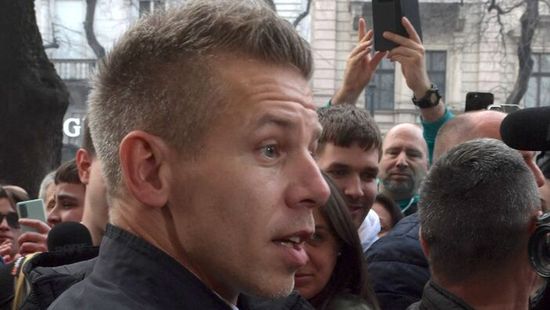Fontos dátum: már erre a napra készül Magyar Péter, nagy bejelentése lesz

Sokadik forgatókönyv készül a Tisza háza táján, ráadásul épp a választásokkal kapcsolatban.

Whatever happens, His Holiness the Dalai Lama has proven that he is a democrat.
„The decision of the 14th Dalai Lama to end the 400-year reign as the Tibetan people’s political leader shocked many Tibetans and the world at large. But this development was neither abrupt nor surprising. In fact, it was a long time in coming. For decades, the Dalai Lama had been quietly dismantling the traditional theocraticaristocratic system of his position and preparing Tibetans for the day he would not be at the helm. (...)
The Dalai Lama’s retirement from politics also proves wrong the Chinese government’s propaganda that the Dalai Lama is not a religious figure but a politician. It is a pity that the Chinese Communist Party is obsessed with the Dalai Lama’s political role and resorts to the blame game, when China’s primary concern should be the future of Tibet and its people. Meanwhile, confusion abounds in Tibet about the Dalai Lama’s role thanks to the lack of information and transparency.
This moment poses a test for the authoritarian regime in China. Tibet has endured 50 years of rule by force. The current state of affairs in Tibet — undeclared martial law, with ongoing protests in Kirti and Kardze and a ban on tourists — shows that Beijing’s rule in Tibet has failed. Instead of hosting indicted war criminals such as Sudanese President Omar Hassan al-Bashir in the Great Hall, Beijing’s leadership has a golden opportunity to prove its sincerity, garner good will and improve the image of China if it would, as the Dalai Lama devolved his political authority, devolve its power to Tibetans to resolve the issue of Tibet.
Whatever happens, His Holiness the Dalai Lama has proven that he is a democrat.”